
Why do we cough, according to science?
As the American Lung Association points out, coughing is a protective reflex and a natural and important function of our immune system 1, 2. It is our body’s way of kicking out foreign “intruders,” such as pollution, pollen, tobacco smoke, dust, and other irritants 3.
But all that said, behind a simple cough lies a complex, and fascinating process.
What happens in your body when you cough?
Our throats and airways are lined with cough receptors 1, 4. Airways are also covered with a thin layer of mucus (remember mucus? another protective barrier in the way of germs) 1.
When we inhale physical or chemical irritants into our airways, our cough receptors recognize them 1, 4.
The cough receptors then send a signal to the “cough center” in the brain, triggering the cough reflex 1, 4.
This cough reflex is a concerted effort of the diaphragm, abdominal wall, and abdominal muscles to quickly inhale and then push out these irritants at a speed of up to 50 (mph) 1, 4, 5. That’s some serious teamwork.
Why do we cough when sick?
When we’re sick, the mechanism that triggers our cough depends on the illness causing the cough itself 2. For example, the most common causes of acute cough (that is, a short-term cough that lasts 3 weeks or less) are 2:
- Upper respiratory tract infections: These are caused mainly by a virus, like in cases of common cold or flu.
- Acute bronchitis: This is a lower respiratory infection usually caused by a virus or bacterium.
In respiratory tract infections, the airways become inflamed 3. Furthermore, the body’s immune response, also known as inflammation, makes the airways hyper-responsive to irritants 3. This, in turn, triggers a cough 3. Toss in the excessive mucus secretion 3, and you have the perfect cocktail of irritation that’s bound to keep you up at night.
In cases of COVID-19, a dry cough is a typical symptom 6. COVID cough can also be productive (with mucus) in some people 12. As with other respiratory infections, in cases of COVID coughing also occurs due to irritation in the airways12.
How other common causes trigger a cough
Other common causes of cough include 2:
- Inflammation of the sinuses (acute rhinosinusitis): The cough here is caused by excess mucus, which builds up because the lining inside the sinuses is inflamed 2.
- Whooping cough (pertussis): This is an infection of the respiratory tract by the bacterium Bordetella pertussis. The bacteria attach themselves to the cilia (small, hair-like structures) inside the airways, releasing toxins, damaging the cilia, and causing the airways to become swollen and inflamed 8.
- Hay fever (allergic rhinitis): Environmental allergens, such as pollen, dust, pet dander, and mold irritate the lining inside the nasal cavity 2, 9. This causes excessive mucus 2, 9. In turn, this excessive mucus causes post-nasal drip, which irritates the throat and causes coughing 2.
- Asthma: In this condition, the body’s immune system overreacts to environmental factors 2. This causes inflammation and excessive mucus, narrowing the airways and blocking the airflow in the lungs 2. This causes coughing 2.
- COPD flare-ups: In COPD flare-ups, parts of the lungs become inflamed, airways narrow, and the lungs don’t function as well 2. This results in a build-up of thick mucus in the tiny air tubes and air sacs of the lungs, which causes coughing 2.
- Heart failure: In this condition, the heart cannot pump blood as efficiently as it should. This causes fluid to build up in the lungs, irritating them and causing a cough 2.
- Pneumonia: When caused by a virus, pneumonia leads to inflammation and irritation of the airways. When caused by a bacterium, pneumonia also increases mucus secretion and pus, which irritates the lungs further. These cause the cough in pneumonia 2.
How to stop coughing
There are several things you can do to soothe your dry cough, including:
- having tasty hot drinks, preferably with honey and lemon
- taking small sips of hot drinks or water when you feel you’re about to cough
- sucking on a lozenge or other sugary sweets
For a wet or productive cough, you can try several things that get rid of mucus, such as inhaling hot steam, or lying flat on one side to help drain the mucus from your throat 11.
CTA For more tips on how to get rid of mucus in the throat and nose, read our article “What to Take to Get Rid of Snot”
Speak to your doctor or pharmacist about other treatment options, such as non-prescription cough medicine and cough syrups.
When is a cough serious?
Upper respiratory tract infections rarely cause complications, and usually go away on their own 6. Acute coughs go away after 3 weeks 5. Coughs that last longer than that, between 3 and 8 weeks, are considered subacute 2, 5. Subacute coughs will also resolve on their own eventually 2.
You should see a doctor about your cough if 1, 6:
- you’re also running a very high fever
- your symptoms are severe, or they have gotten worse
- you have chest pain, shortness of breath, or you’re struggling to breathe
- you also have headaches and drowsiness
- you’re coughing up mucus that is yellowish-green or bloody
- your cough also has a wheezing, whopping, or barking sound
You should also see a doctor if:
FAQs
Many forms of cough tend to get worse at night 10, interrupting our precious sleep. This is because when you’re lying down on your back, pesky mucus from your throat and nose drips down the back of your throat, causing further irritation 10. Coughing from asthma can also worsen at night because airways are more sensitive and irritable at night time 10.
Coughing in public might make you feel scrutinized or embarrassed 5, and you might therefore be tempted to hold it in. However, you shouldn’t suppress a cough too much 11. Coughing is a useful, protective reflex that helps you get rid of harmful substances and irritants. It can also help to clear mucus, which in severe cases of cough, could even make breathing difficult.
That said, if you do need to cough in public, you should cover your mouth, and save others from those same harmful bacteria and viruses. Let it out, sure, but don’t spray it.
Yes, they can. Allergic rhinitis, or hay fever, is one of the common causes of cough 2. In hay fever, environmental agents, such as pollen, dust, pet dander, and molds, irritate the lining inside the nasal cavity, causing excessive mucus 2, 9. This causes post-nasal drip, which irritates the throat and causes coughing 2.
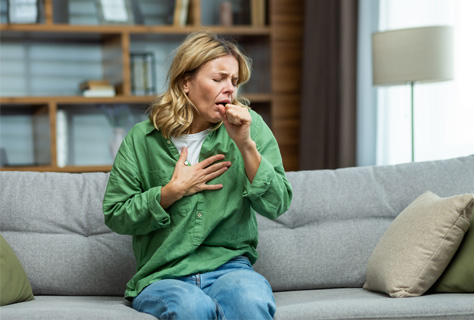.webp)
1. Learn about cough, American Lung Association, accessed 17/11/2022, available at https://www.lung.org/lung-health-diseases/warning-signs-of-lung-disease/cough/learn-about-cough
2. Sharma S, Hashmi MF, Alhajjaj MS. Cough. [Updated 2022 Aug 18]. In: StatPearls [Internet]. Treasure Island (FL): StatPearls Publishing; 2022 Jan-. Available from: https://www.ncbi.nlm.nih.gov/books/NBK493221/
3. Murgia V, Manti S, Licari A, De Filippo M, Ciprandi G, Marseglia GL. Upper Respiratory Tract Infection-Associated Acute Cough and the Urge to Cough: New Insights for Clinical Practice. Pediatr Allergy Immunol Pulmonol. 2020 Mar;33(1):3-11. doi: 10.1089/ped.2019.1135. PMID: 33406022; PMCID: PMC7875114.
4. Polverino M, Polverino F, Fasolino M, Andò F, Alfieri A, De Blasio F. Anatomy and neuro-pathophysiology of the cough reflex arc. Multidiscip Respir Med. 2012 Jun 18;7(1):5. doi: 10.1186/2049-6958-7-5. PMID: 22958367; PMCID: PMC3415124.
5. On, P. C. (2022). Overview of chronic cough. The American Journal of Managed Care, 28(9 Suppl), S152-S158.
6. InformedHealth.org [Internet]. Cologne, Germany: Institute for Quality and Efficiency in Health Care (IQWiG); 2006-. Common colds: Overview. [Updated 2020 Oct 8]. Available from: https://www.ncbi.nlm.nih.gov/books/NBK279543/
7. Long COVID: Cough, NHS inform, accessed 17/11/2022, available at https://www.nhsinform.scot/long-term-effects-of-covid-19-long-covid/signs-and-symptoms/long-covid-cough
8. Pertussis, Causes and How It Spreads, CDC, accessed 17/11/2022, available at https://www.cdc.gov/pertussis/about/index.html
9. Wang, Y. (2005). Risk factors of allergic rhinitis: genetic or environmental?. Therapeutics and Clinical Risk Management, 1(2), 115-123. https://doi.org/10.2147/tcrm.1.2.115.62907
10. Coughing - Johns Hopkins All Children's Hospital, accessed 17/11/2022, available at https://www.hopkinsmedicine.org/health/conditions-and-diseases/chronic-cough
11. Relieving a cough, topic overview, Alberta Health Services, accessed 17/11/2022, available at https://myhealth.alberta.ca/Health/Pages/conditions.aspx?hwid=ug1887
12. Cohen-McFarlane M, Goubran R, Knoefel F. Novel Coronavirus Cough Database: NoCoCoDa. IEEE Access. 2020. doi: 10.1109/ACCESS.2020.3018028. https://www.ncbi.nlm.nih.gov/pmc/articles/PMC8545298/
a. Mucosolvan Syrup leaflet last revised in July 2022.
b. Mucosolvan 75mg capsules leaflet last revised in July 2022.
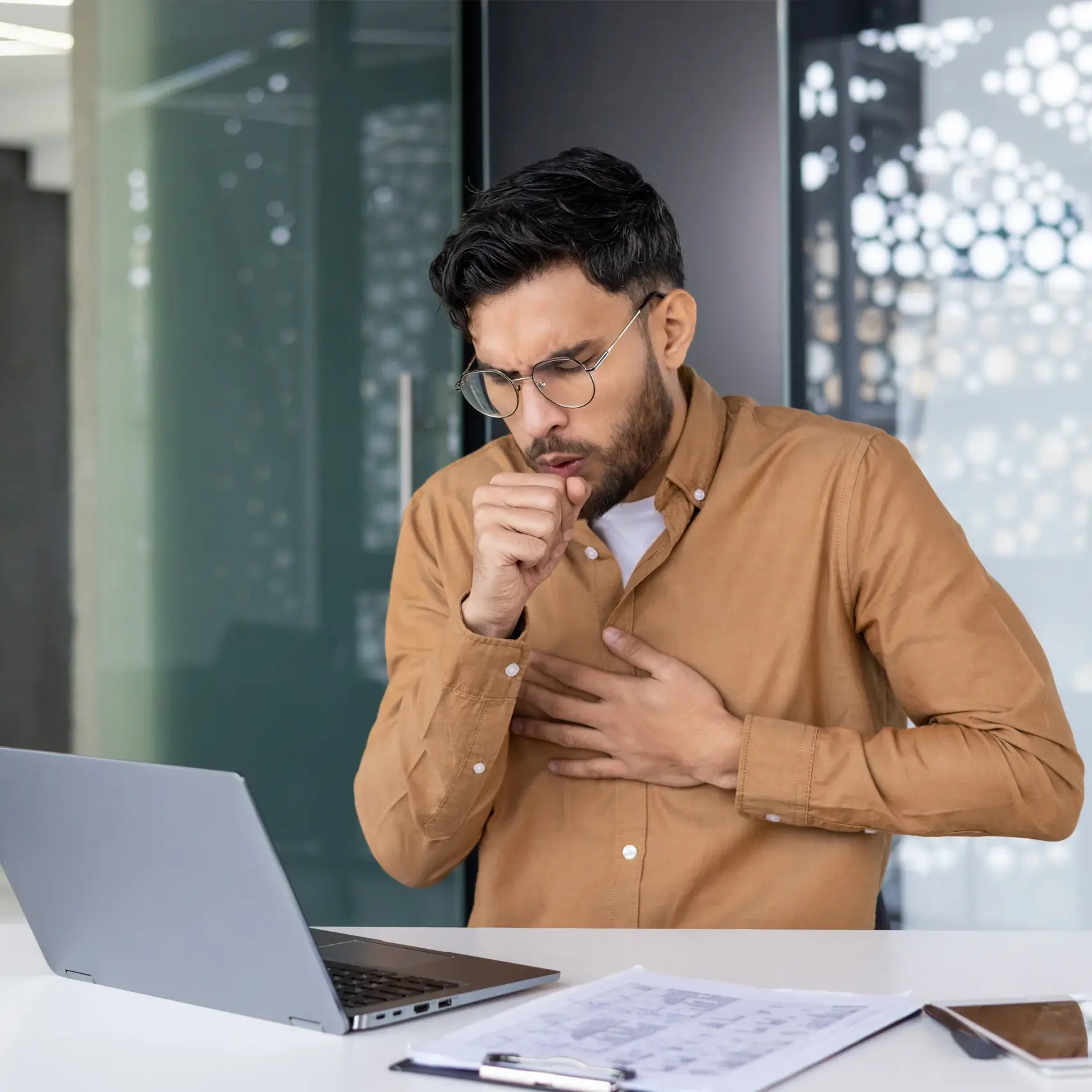%20(1)%20(1).webp)
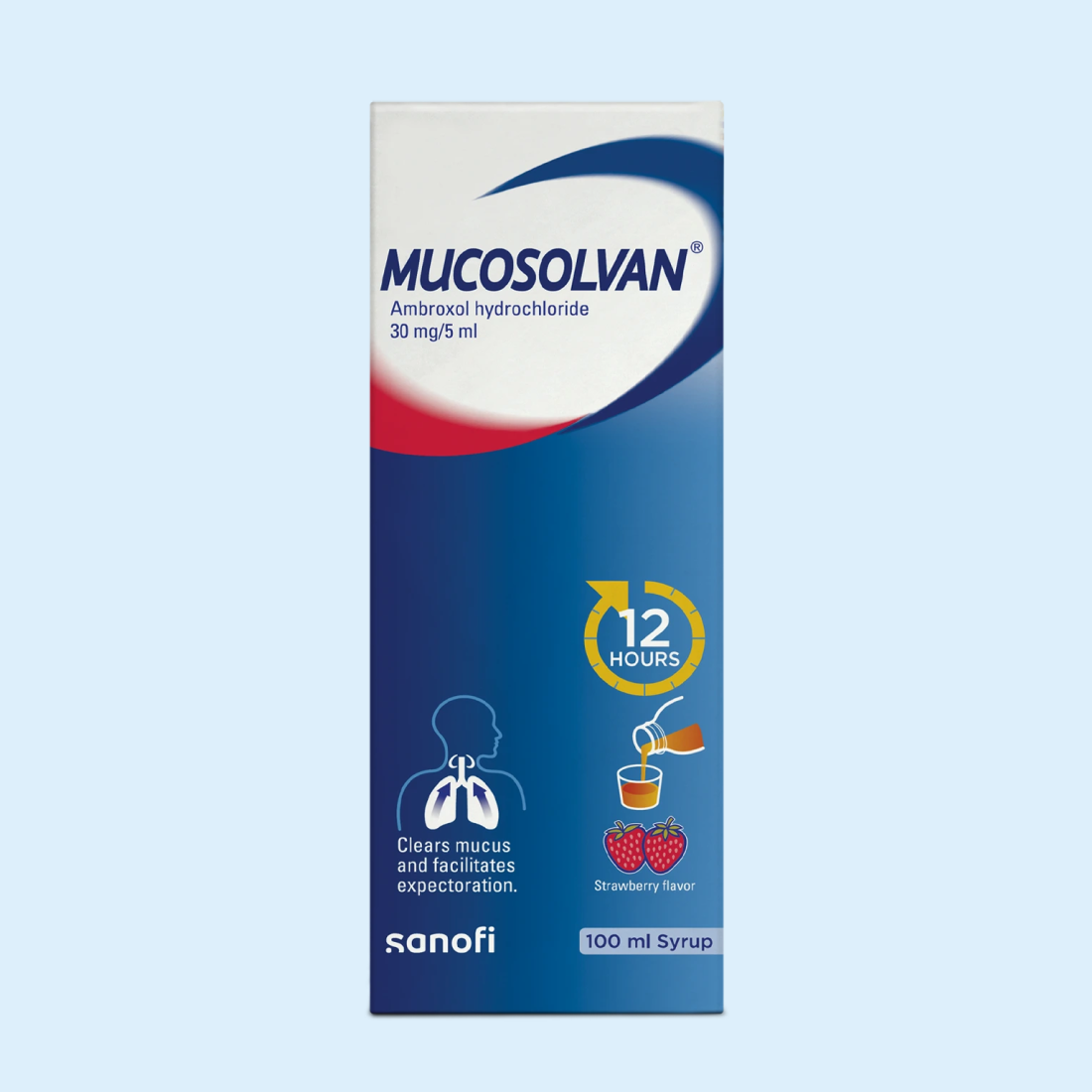
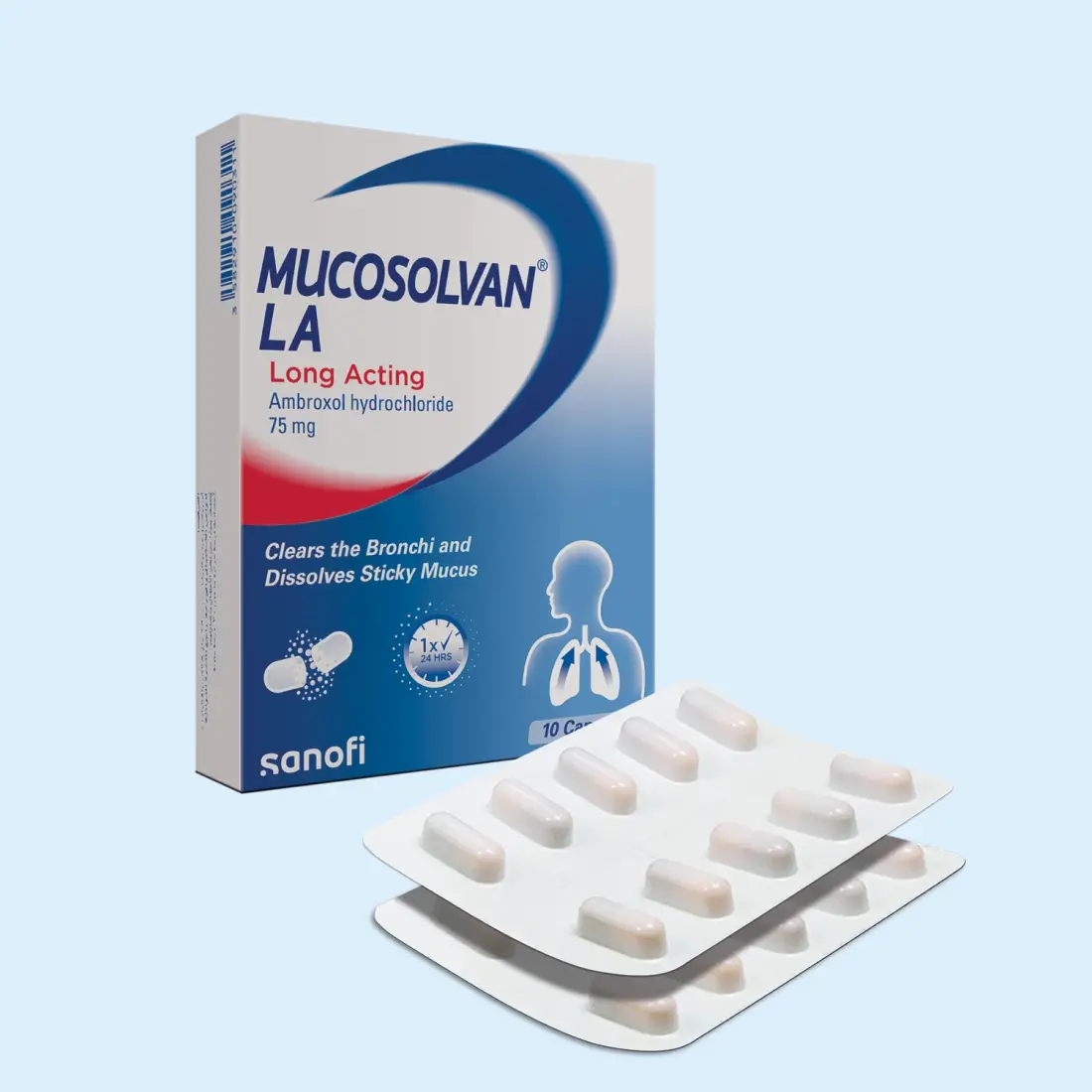
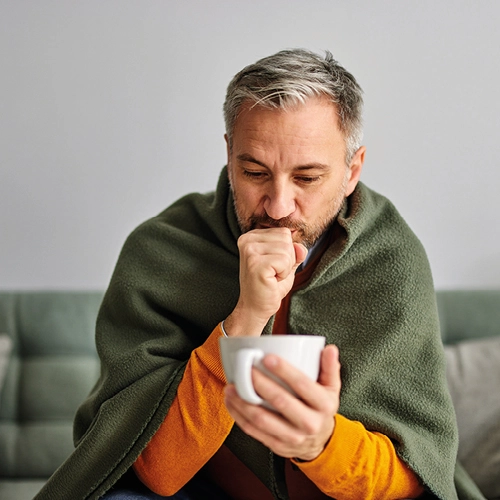
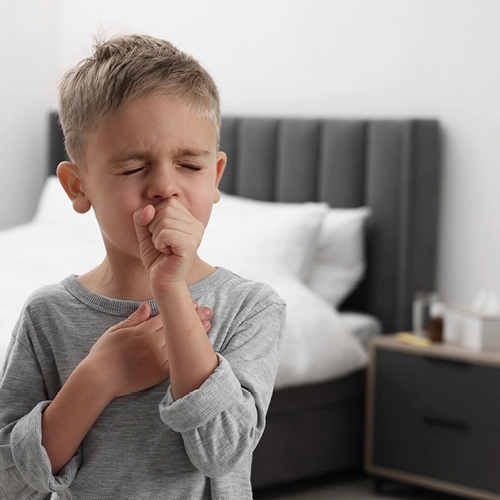
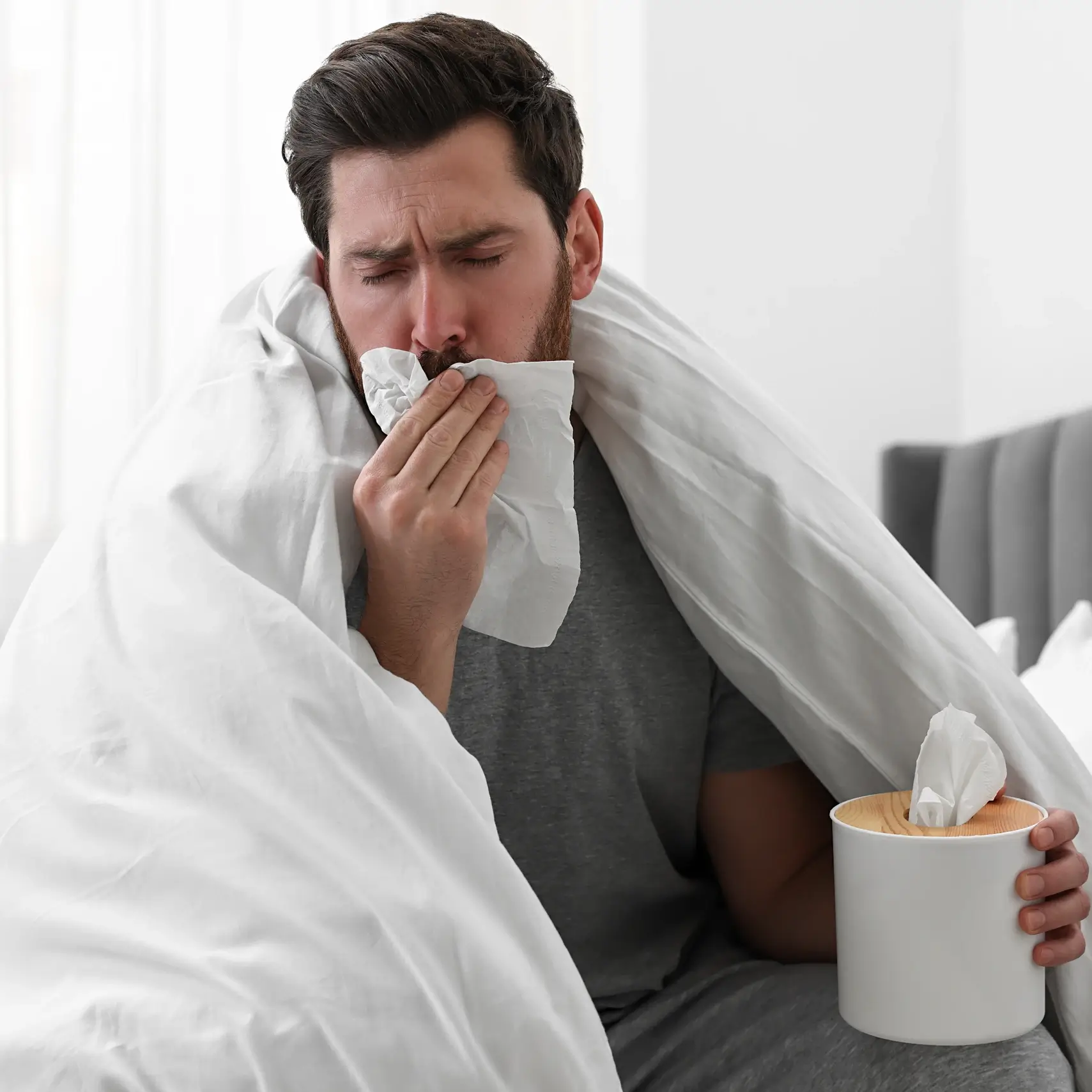%20(1).webp)
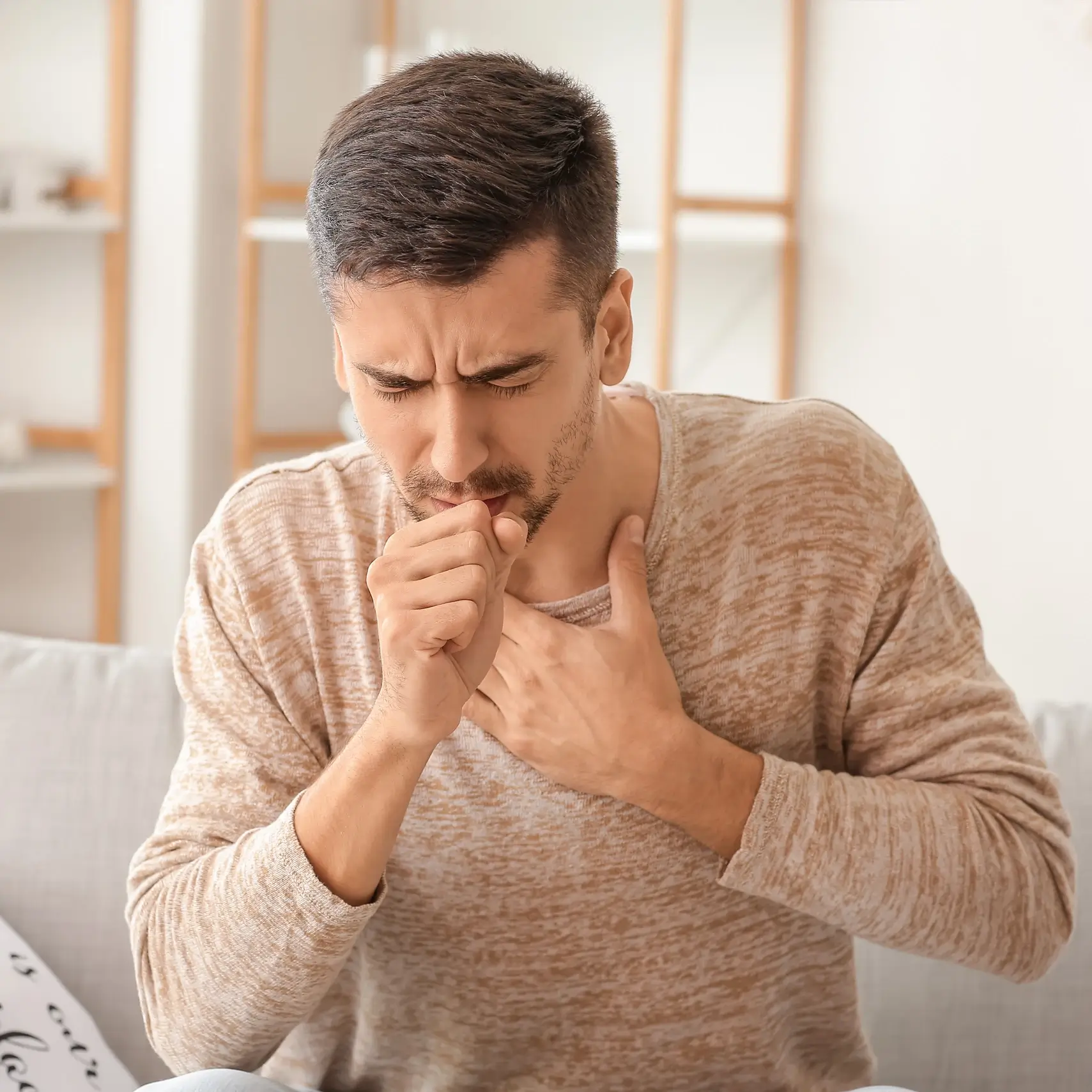%20(1).webp)
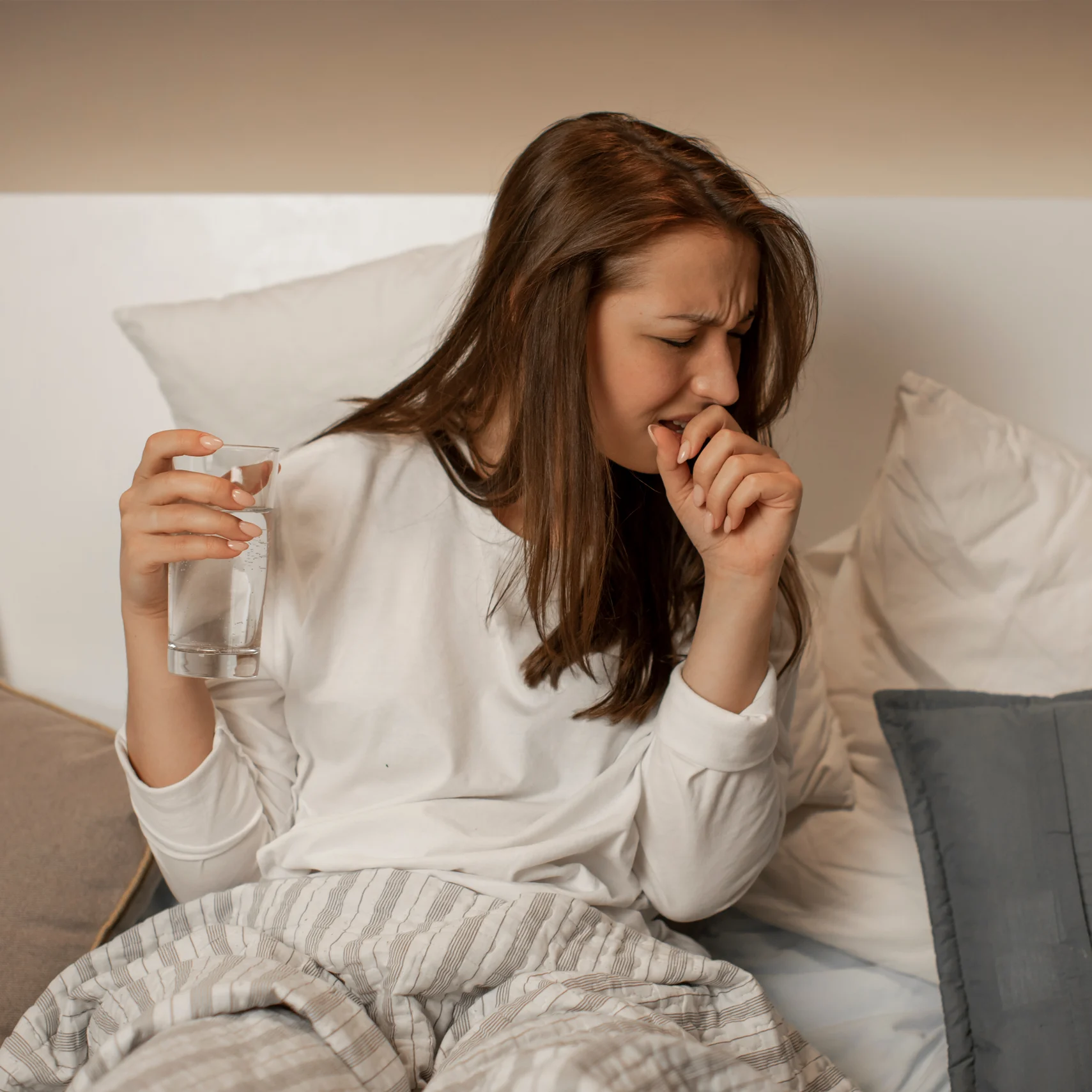
-2.webp)

